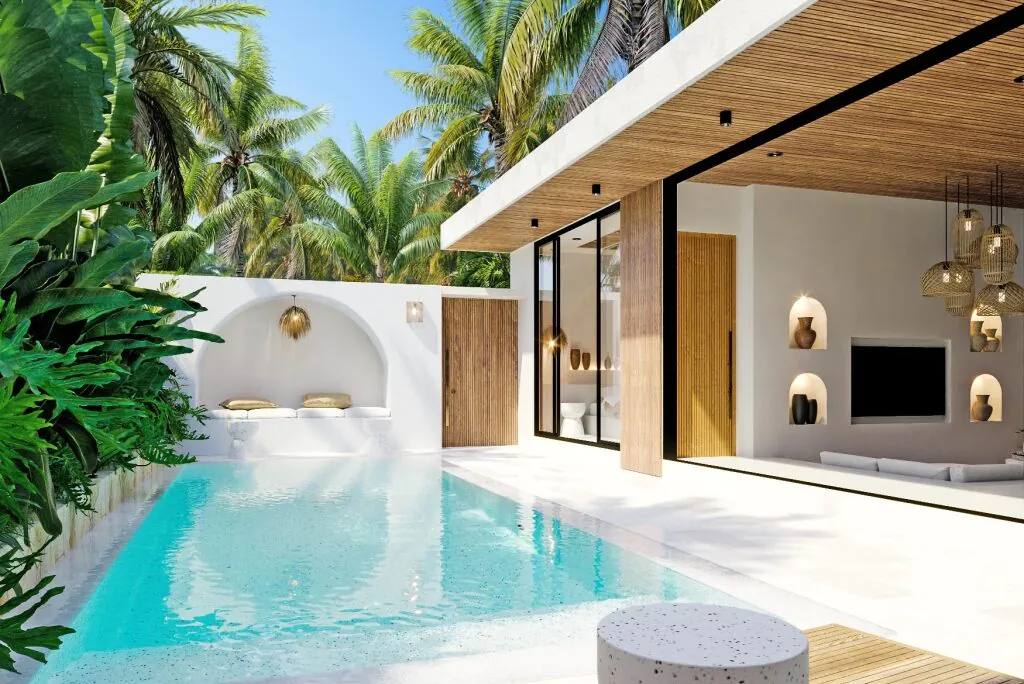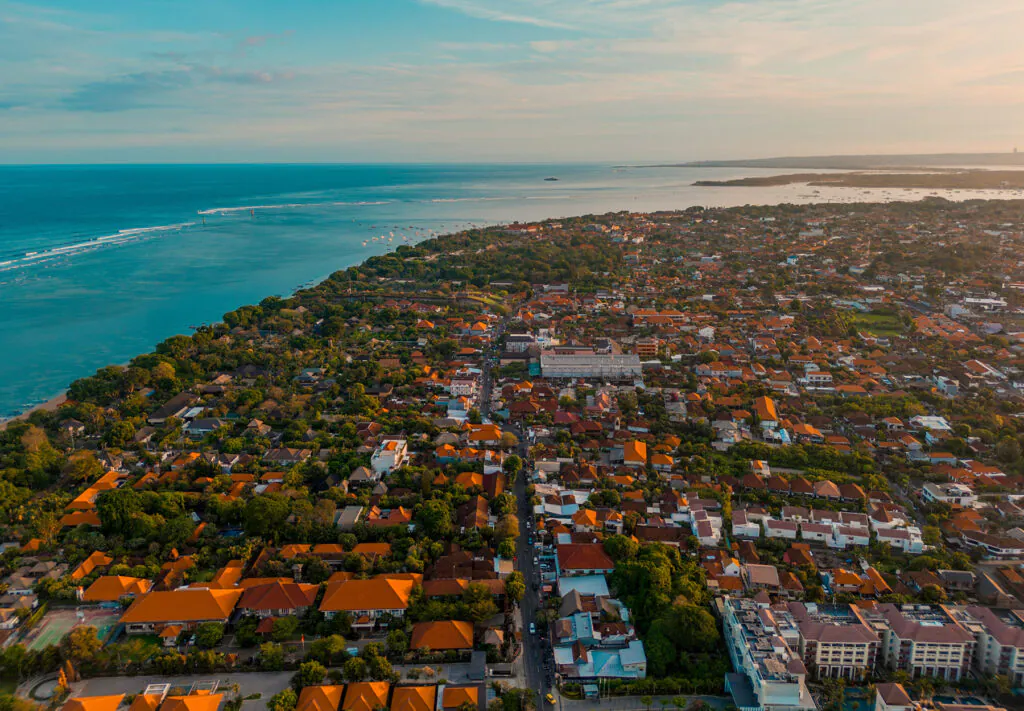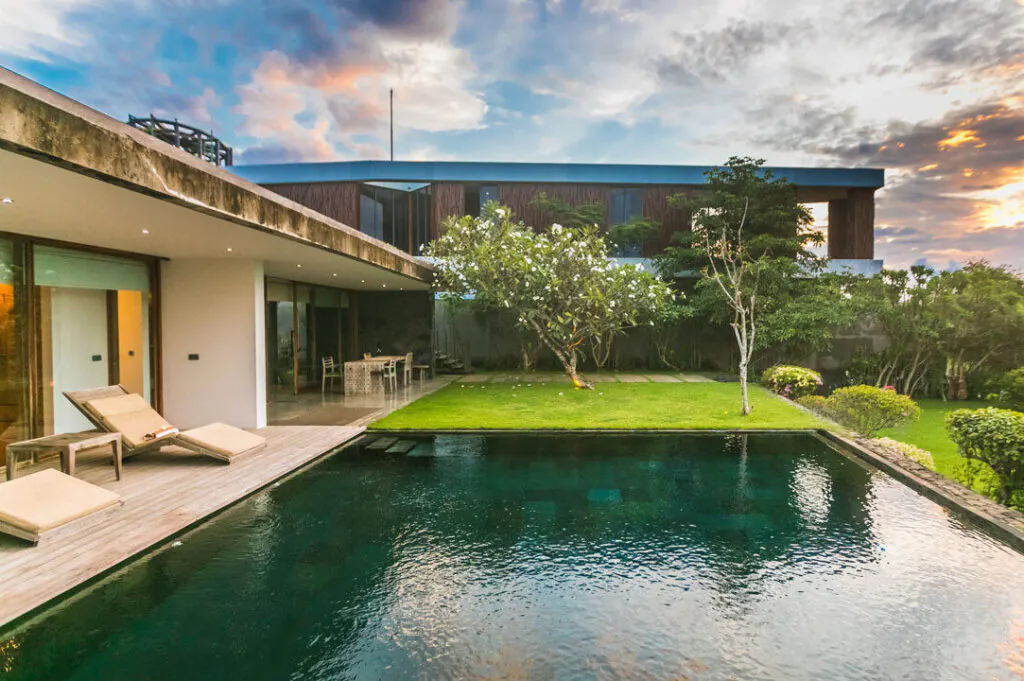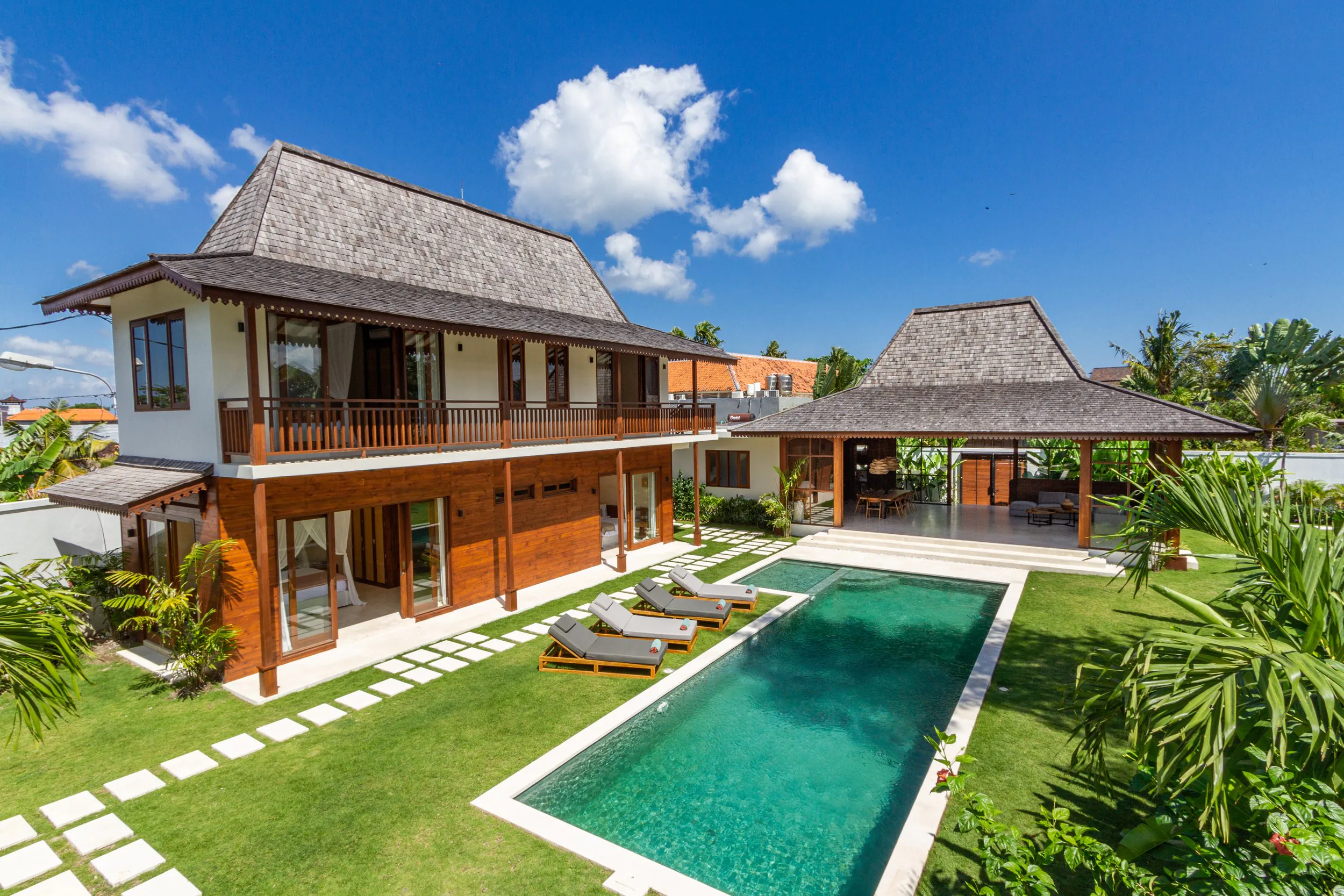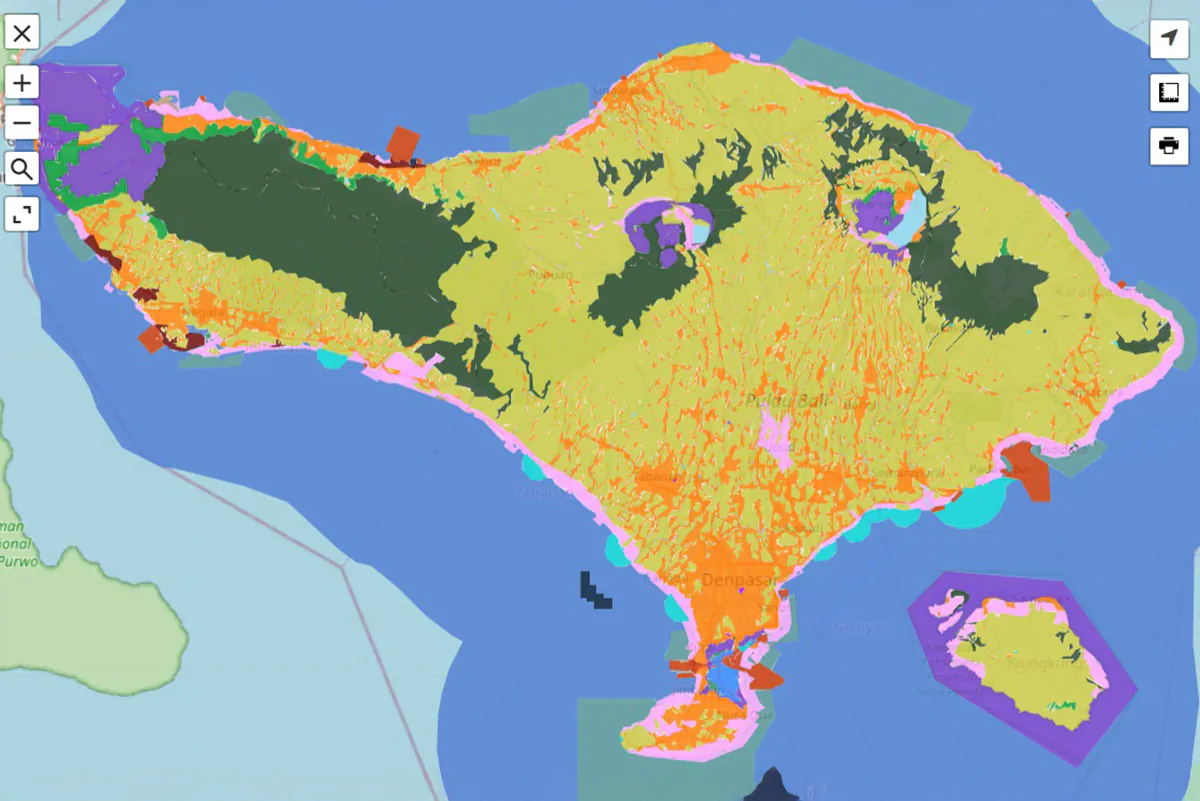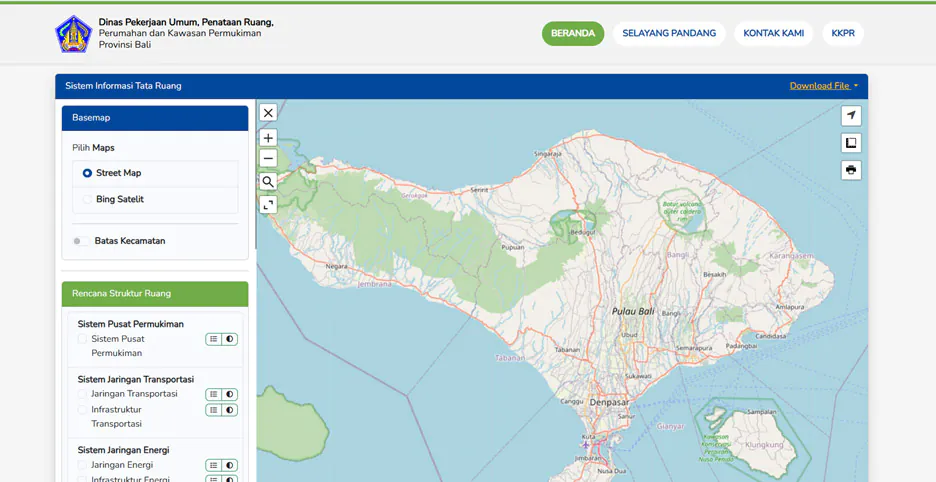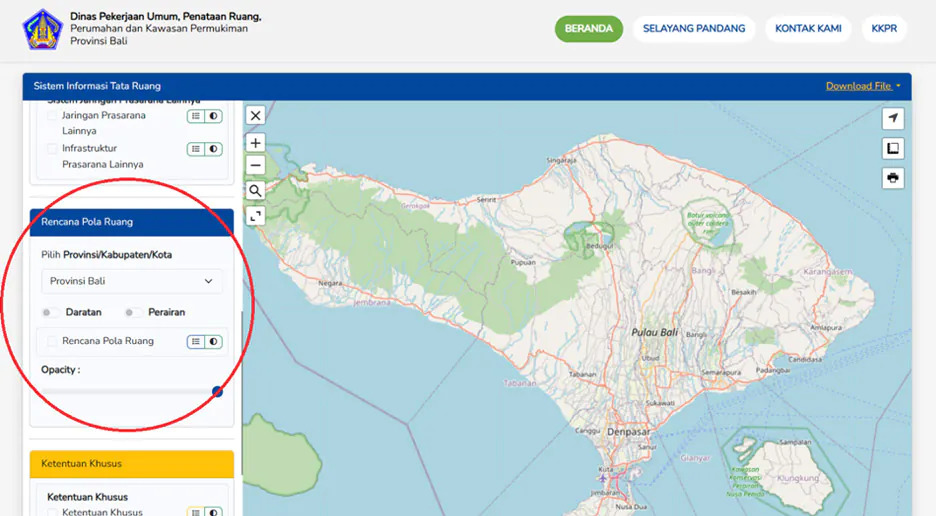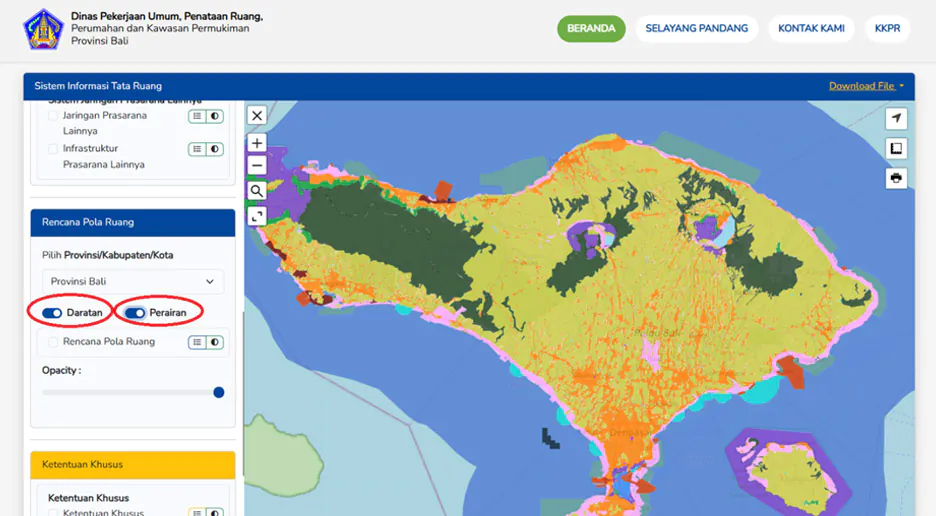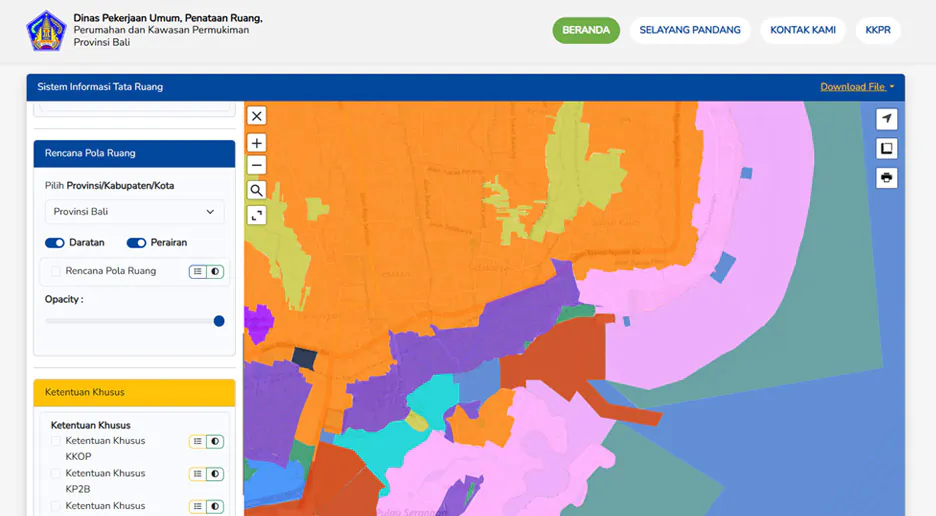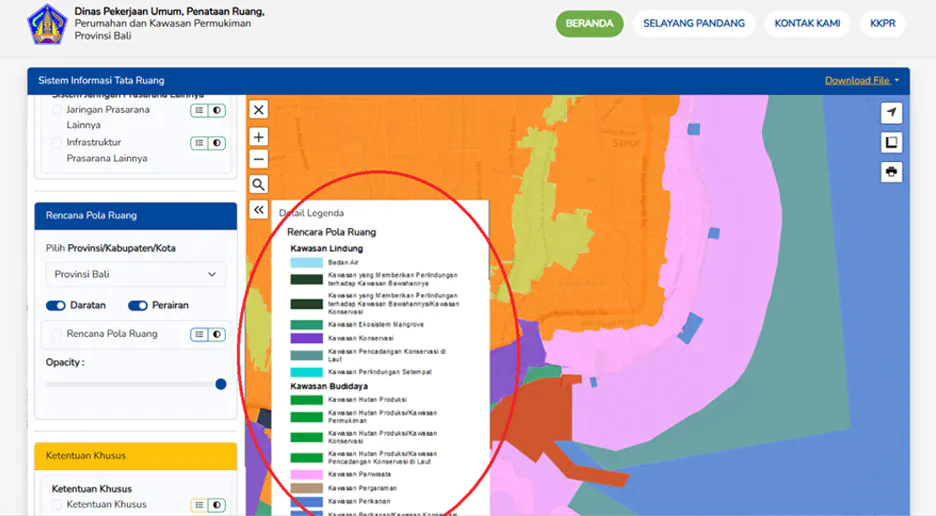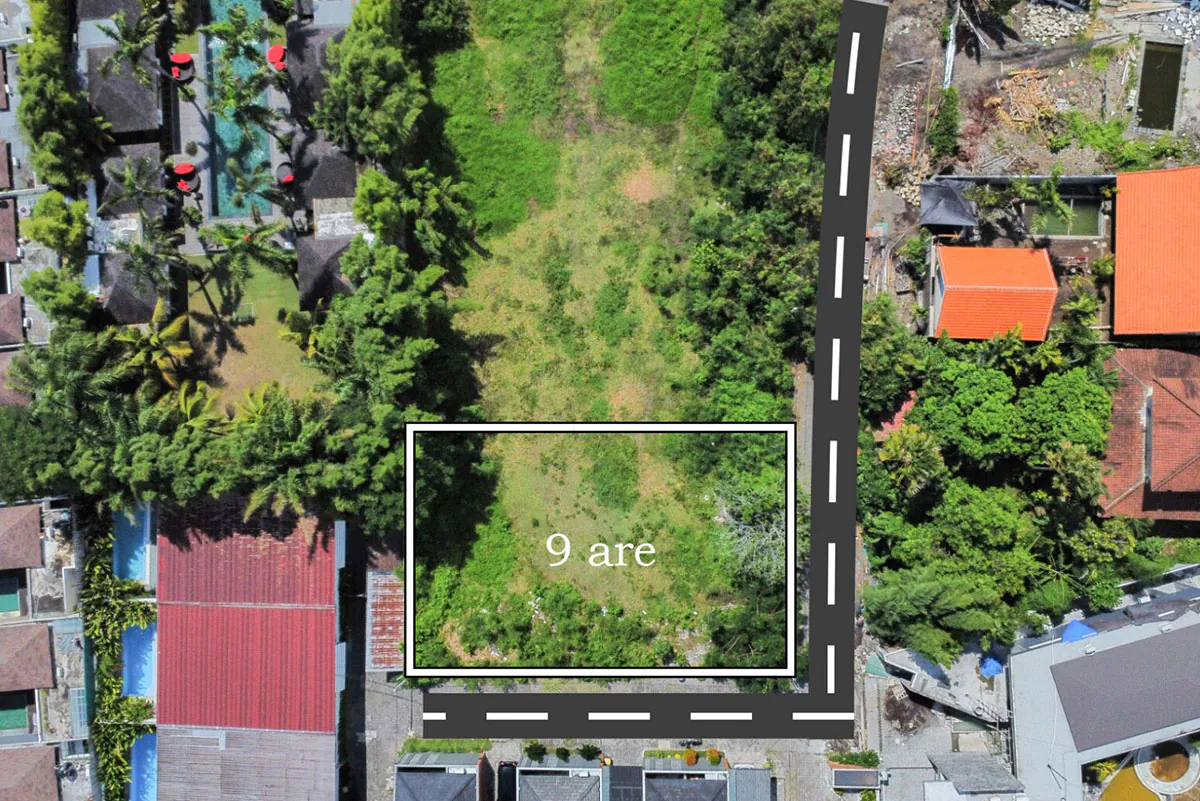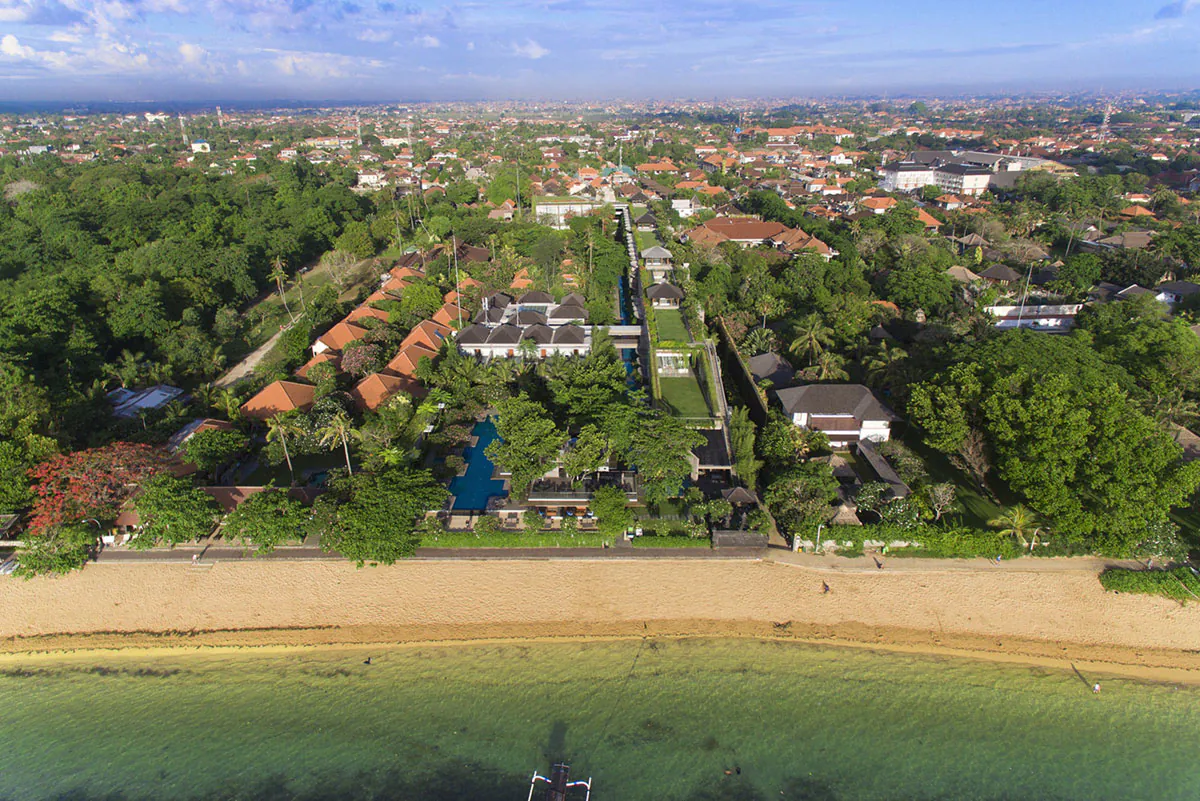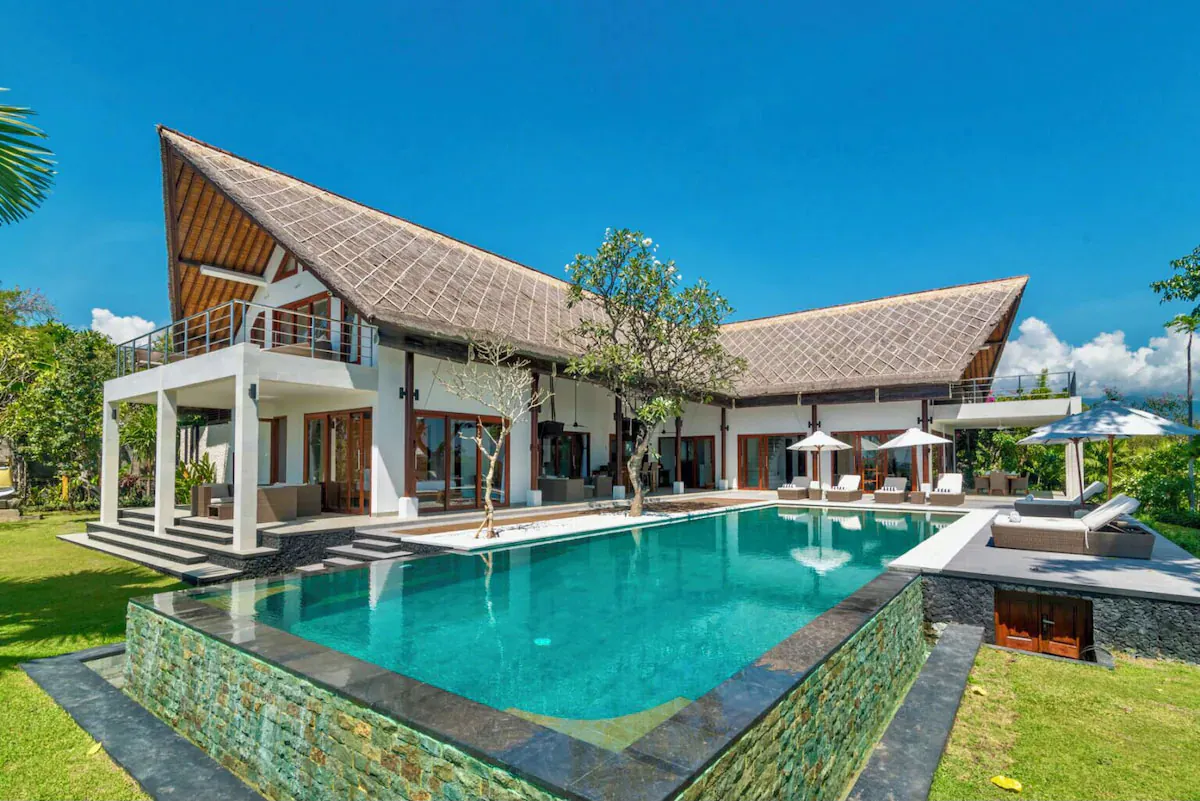By James, Sanur Villa & Land Hunter Uncategorized
Are you a foreign national that wishes to buy property in Sanur or Bali? Have you found the perfect plot of land, or a fantastic house, or a dream villa for sale in Sanur or Bali… And now you want to understand the legal options available to you, as a foreign national, for purchasing the property safely & securely?
If so, this article is for you!
Because if you are from overseas and want to buy property in Sanur, or anywhere else in Bali, you must first understand the local real estate laws that apply to any foreigner when buying property in Bali.
Before investing a large chunk of your hard-earned money into that beautiful villa for sale in Sanur or top quality plot of land for sale in Sanur, you must first know how to legally & safely buy property in Sanur – or within Bali at large.
Because not all types of local property ownership title / status are legally available to foreigners when they buy real estate in Bali.
If you spend some time talking to long-term expatriates residing in Bali, or do some deep googling, you will no doubt come across “Bali property horror stories” – very sad cases where foreign nationals have bought their Bali dream property the “wrong way” and suffered large financial losses as a consequence.
But Do Not be put off – just make sure you do things the right way, legally & safely!
There’s a common theme to Bali property horror stories, either the person has been naive, or they have intentionally tried to outwit Indonesia’s property laws / regulations – and in time lost their asset and investment monies… as it was never theirs… legally speaking… in the first place.
Sometimes they did not do their research into the rules that govern foreign national property ownership in Bali, or they simply got carried away by the idea of buying their Sanur beach villa and were innocently misled by a dodgy estate agent and a cowboy notary (the key legal party involved in any Bali property deal).
And sometimes they tried to be “clever”, intentionally using a convoluted “Nominee Structure” (more on this later) to deliberately try and by-pass Indonesia’s clear property ownership laws – laws that apply to all foreigners when they buy real estate in Sanur, or Bali.
This article has been written by me, to help ensure that any foreign national looking to buy a plot of land, house or villa for sale in Sanur, or Bali, does so the right way – legally, safely and securely – so that they can enjoy the long-term fruits of their labor & investment.
But as a foreword, the views shared in this article are purely my own and I am not an Indonesian property law expert.
My comments are based on all that I have learnt over the years, as a foreign national living in Bali, who has bought property in Sanur and Bali, and the deep dive research that I have performed.
My strong advice to any foreign national planning to buy a villa, house or plot of land for sale in Sanur, or Bali, is that once you have selected a property to buy, you should consult with a good, recommended, honest Balinese notary or property lawyer.
A good Balinese notary or property lawyer can provide you with full insight into the current property ownership regulations that apply to foreigners in Bali – as things change over the years – and they can also provide you with their recommendation for the best type of property “purchase route” to take.
The best “purchase route to take” will depend on your personal circumstances – your plans for the property, whether it is for personal use as a residential dwelling or for commercial activities / short term rentals etc, your visa status in Indonesia, whether you plan to buy in your own name or under the name of a 100% foreign owned Indonesian company that you create, control and own (called a PT PMA) etc.
The 4 Main Types of Property Ownership Title in Sanur & Bali
Bali’s real estate law is primarily governed by Indonesia’s Agrarian Law No. 5/1960 (Undang-Undang Pokok Agraria).
Under the Agrarian Law there are 4 main types of property ownership title.
They are:
- Hak Milik – basically Freehold Ownership
- Hak Sewa – equivalent to a Long Leasehold
- Hak Guna Bangunan – the Right to Build on land
- Hak Pakai – the Right to Use existing property
There are a few other property ownership titles, but they are much less common… and pretty much irrelevant to any foreign property buyer in Bali.
My understanding is that all 4 types of property ownership title, as listed above, are ultimately linked to the underlying land that any property sits on
Out of these 4 property ownership categories, 3 types are legally available for foreign nationals to use when they buy property in Bali.
That means if a foreign national buys property in Sanur or Bali under these 3 categories, the purchase is valid & protected by Indonesian law.
Depending on the type used, a foreigner can either buy property in Sanur, or Bali, directly under their own name, or via setting up, owning and controlling a 100% foreign owned local Indonesian company (called a PT PMA).
These 3 property ownership categories each provide their own set of advantages and restrictions.
What Property Title Can NOT be Bought by Foreigners in Sanur or Bali? Hak Milik – Freehold Status
Hak Milik (HM) is basically the equivalent of Freehold Title Status in the UK or Australia etc.
It is NOT available to foreign nationals when buying property in Bali – either under their own name or via a 100% foreign owned local PT PMA company that they set-up and control.
Hak Milik freehold status can ONLY be registered in the name of local Indonesian citizens and some select types of Indonesian entity, such as social and religious institutions.
Hak Milik is the equivalent to Freehold land ownership in the UK or Australia etc. It is the highest level of land / property ownership title that is available in Indonesia.
Hak Milik is regulated under the Agrarian Law No. 5 year 1960, Articles 20 – 27.
When an Indonesian citizen buys Hak Milik freehold land / property in Bali they are stated as the new Hak Milik owner on the land certificate / in the land agency records (called BPN).
Under Hak Milik title, the land and any property that sits on the land, is ultimately owned by the Hak Milik titleholder for perpetuity – forever – unless transferred or sold.
BUT, very importantly, Hak Milik freehold status can be encumbered by / subject to over-riding long leases, other property titles, other interests, such as mortgages, that the Hak Milik freehold owner grants over their land / property.
So, like anywhere else in the world, any long leases / titles / interests that are granted by a Hak Milik freehold land owner over their freehold land, will take priority / precedence (over and above the freehold land owners interests) for the duration of time that they remain active & valid.
The titleholder of Hak Milik land or property can use the land for any purpose, subject to property zoning / building permits / government regulations.
Hak Milik freehold ownership status has no time limit, it lasts forever and it automatically passes down through the generations via inheritance.
Hak Milik freehold status can be sold, leased out, gifted, exchanged, or used as security for a bank mortgage etc.
It is very clear under Indonesian law that foreign nationals and 100% Foreign Owned local Indonesian companies (called PT. PMA’s) Can NOT acquire / purchase Hak Milik freehold status in Sanur, Bali, or anywhere in Indonesia.
The Agrarian Law clearly states that any attempt by a foreigner, or a foreign owned company, to purchase Hak Milik freehold status is automatically void and by law the land / property then belongs to the government.
In essence, the Indonesian government’s aim is very clear — they wish to keep Hak Milik freehold ownership status, the highest level of land ownership available in Indonesia, 100% within the hands of local Indonesian citizens ONLY (or within the possession of the government itself).
Therefore, foreign nationals, or 100% Foreign Owned Indonesian companies (called PT. PMA’s) can Only Legally acquire / purchase the equivalent of long leasehold titles in Indonesia.
There are 3 common types of long leasehold title that are available for use by foreign nationals, which shall be explained below.
Under long leaseholds the Foreign Individual, or 100% foreign owned company (PT PMA), takes exclusive possession of the land / property from the Hak Milik freehold owner for the stipulated duration / term of the long lease (up to 80 years) and subject to the conditions that apply to the long lease.
The only way for a foreigner to legitimately – but “indirectly” – own Hak Milik freehold status land / property in Sanur, or Bali, is if they are married to an Indonesian citizen.
But to do so you must have a pre-nuptial or post-nuptial agreement in place with your Indonesian spouse which separates your property assets.
In this situation, when buying Hak Milik freehold land or property, the new Hak Milik ownership status is placed under your Indonesian spouses name.
I say “indirectly own Hak Milik freehold status” as ultimately the land / property is owned, under law, by your Indonesian spouse.
However, the foreigner can then enter into a long leasehold agreement with their Indonesian spouse, over the freehold land / property, thus providing good security for both husband and wife.
The other method that a lot of foreigners have used over the years, in an attempt to purchase Hak Milik freehold status land / property in Bali – which is definitely not recommended, as it is risky – is to work with / use the services of a local Indonesian citizen who acts as their Hak Milik freehold “Nominee”.
Under the “Nominee Scenario”, the Hak Milik freehold status is purchased using the name of the Indonesian nominee, with various notarized side agreements put in place between the Indonesian nominee and the foreign buyer, to give the foreign buyer control over the land / property.
The foreign buyer pays the Nominee a fee and the foreign buyer has the ability to sell the Hak Milik freehold status in the future, which of course is more valuable than a standard long leasehold interest.
Often the Nominee will also get a % of any future sales proceeds.
Needless to say, whilst the Nominee scenario often runs very smoothly and works out well… it is a “win-win” for everyone involved… it is very risky and certainly not recommended.
Why? Because under Indonesia’s constitutional law, the Indonesian Nominee is the Hak Milik freehold land / property owner and they have granted the foreign buyer control over the land / property via notarized side agreements.
The issue is… if there is ever a falling out between the Indonesian Nominee and the foreign buyer and if the courts detect that a deliberate Nominee structure has been established and used by the foreigner to purchase Hak Milik freehold status, well… they do not look kindly on such situations…
They are very likely to determine that the notarized side agreements are illegal, as the Nominee structure is a clear attempt to by-pass / ignore Indonesia’s Agrarian Laws regarding Hak Milik freehold ownership.
That is why some foreigners (the horror stories) have lost their dream property in Bali and their investment monies… as they have bought the property in a very dodgy / totally wrong way and in doing so forfeited their legal rights & protection.
Hence our strong advice – play safe & please ignore the Nominee structure.
The 3 Types of Property Ownership that CAN be Legally Bought by Foreigners in Sanur or Bali
Hak Sewa – A common Long Leasehold – it can be used to buy empty land Or existing residential or commercial property.
Hak Sewa is simple to execute and a great option for any foreign national that wants a lower up-front purchase cost.
It can be used by foreigners to purchase empty land or existing property in Sanur or Bali, for residential purposes / as a holiday home, or for commercial activity purposes.
Even better, a foreign national can purchase land or property under Hak Sewa using their own name – if it is for personal use.
It can also be used by foreigners who wish to purchase empty land and build, or existing property, for commercial purposes / short-term villa rentals etc — if they purchase via a 100% foreign owned PT PMA company that they set-up, control and own.
A Hak Sewa long leasehold is low cost to execute & requires few documents.
It is the most common property “purchase route” taken by foreigners in Bali.
In essence, Hak Sewa is a notarized long leasehold contract that is entered into between a foreign buyer and the freehold owner selling the long leasehold interest.
It provides you with exclusive use and ownership of the land / property, for the duration of the long lease, it is fully protected and valid under Indonesian law.
A Hak Sewa long leasehold can be safely executed for up to 80 years in total duration (including renewals).
Typically you would only pay for the first 20-30 years up-front, hence it is much cheaper to buy land or property under a Hak Sewa long leasehold Vs Hak Milik freehold status.
But if you plan to operate the land / property commercially, such as for short-term villa rentals, it is highly recommended to acquire the Hak Sewa long leasehold via the use of a 100% foreign owned local Indonesian company, called a PT PMA, that you set-up, fully control and own.
Setting up and managing a PT PMA creates extra costs though.
The good news is, a 100% foreign owned PT PMA company, that owns land / property in Bali under a Hak Sewa long leasehold, can apply for all the necessary commercial licenses and permits that are needed to operate the property commercially.
On the other hand, a foreign national that owns a Hak Sewa long leasehold property under their own name can Not apply for all the necessary licenses to operate the property commercially.
So, if a foreign national buys land / property via a Hak Sewa long lease, in their own name, and then wishes to operate the property commercially, they would need the support / help of their Indonesian Hak Milik freehold owner, who must sign the paperwork for the required commercial licenses.
Hak Guna Bangunan (HGB) – this is designed for commercial property activities. It is as close to purchasing Hak Milik freehold status – in your PT PMA company’s name – as it gets for a foreigner.
HGB is ideal for foreigners that wish to purchase empty land in Sanur or Bali, develop the land and then operate commercial property on the land, such as short-term villa rentals, a guest-house or a hotel.
The thing is, you can only use HGB title to purchase empty land – or you need to acquire an existing property that already benefits from HGB title.
Importantly, as a foreigner, you can only purchase under the HGB title if you use a 100% foreign owned local Indonesian company (called a PT PMA) that you set-up, fully control and own.
Your PT PMA company is then registered as the HGB titleholder.
A foreign individual can Not purchase empty land / an existing HGB property under the HGB title using their own name.
In essence, the HGB title allows a 100% foreign owned PT PMA company to purchase Hak Milik freehold land in Bali.
So when you buy under the HGB title it is priced the same as a freehold purchase, which is typically a lot more expensive than buying under the Hak Sewa long leasehold title.
When you buy land in Bali under the HGB title, the Hak Milik freehold ownership of the land is transferred from the seller to the government.
The government then grants you the HGB title over the land, which is registered at the Land Agency.
The HGB certificate of title, issued by the Land Agency (BPN), states your PT PMA company as the HGB title owner.
The HGB title duration is for 80 years (including renewals) but if you sell HGB land or property to an Indonesian citizen, the HGB title is converted back into Hak Milik freehold status for the new Indonesian buyer.
Therefore, value wise, a HGB title is treated the same as having Hak Milik freehold status.
A 100% foreign owned PT PMA company can apply for all the necessary commercial permits that are needed to operate land / property commercially, such as for short-term villa rentals or a hotel.
Hak Pakai (HP) – this allows foreigners that live in Bali to buy existing residential property. It is as close to purchasing Hak Milik freehold status – in your own name – as it gets for a foreign national.
Hak Pakai is great for foreign individuals that reside in Bali, possess a KITAS or KITAP residency visa / permit and wish to purchase an existing residential property in Sanur or Bali, under their own name.
There must be an existing residential building on the land to qualify for purchasing under a Hak Pakai ownership title. Apartments also qualify. But empty land doesn’t qualify.
A foreign national that is residing in Bali can only purchase 1 Hak Pakai property under their own name.
Also, to purchase under Hak Pakai title in Bali, the property must cost at least IDR 5,000,000,000 for a house or IDR 2,000,000,000 for an apartment. Also the land can not be larger than 2,000 m2 (“20 are”).
Hak Pakai allows foreign nationals, under their own name, to purchase existing freehold Hak Milik residential property.
So, when you buy freehold residential property under the Hak Pakai title it is priced the same as buying Hak Milik freehold status, which is typically a lot more expensive than buying under the Hak Sewa long leasehold title.
Under the Hak Pakai title the freehold ownership of the land is transferred from the original seller and placed under the government.
The government then grants you the Hak Pakai title over the land and existing residential property, which is registered at the Land Agency.
The Hak Pakai certificate of title states you as the Hak Pakai title owner.
The Hak Pakai title duration is for 80 years (including renewals) but if you sell Hak Pakai property to an Indonesian citizen, the Hak Pakai title is converted back into Hak Milik freehold status for the new Indonesian buyer.
Therefore, value wise, the Hak Pakai title is treated the same as owning Hak Milik freehold status.
The Hak Pakai title is designed for residential property — Not for commercial property, such as short-term villa rentals.
If you wish to use land / property for commercial purposes you should buy under Hak Sewa or Hak Guna Bangunan.
1st Type of Property Purchase Available to Foreigners – Hak Sewa (HS) – Equals a Notarized Long Leasehold Contract
Hak Sewa is the most common purchase route taken by foreigners when buying property in Bali.
Hak Sewa can be used by foreigners that wish to buy a plot of empty land, a house or a villa for sale in Sanur or Bali – for personal use, commercial activities or for land banking as a longer term investment.
It is simple, low cost to execute, legally safe for foreigners to use & protected under the Indonesian constitution.
Basically, Hak Sewa is the equivalent to purchasing a Long Leasehold interest over land / property.
When you purchase land / property in Sanur or Bali under a Hak Sewa long lease, you are Not buying the freehold Hak Milik interest / title from the Hak Milik owner, so there is no change to the freehold owners name, the freehold owner remains the same.
You are instead buying a long leasehold interest from the Hak Milik freehold owner that grants you exclusive rights and benefits over the freehold land / property for the duration of the long lease.
A Hak Sewa long lease is entered into between the freehold land / property owner (the Lessor) and the foreign long leasehold buyer (the Lessee).
Alternatively, you can buy an existing Hak Sewa long leasehold property, and all the rights and benefits associated with it, from the current owner of an existing Hak Sewa long leasehold property.
Hak Sewa long leaseholds are regulated under the Agrarian Law No. 5 year 1960, Article 44 and 45.
Foreign individuals can purchase a Hak Sewa long leasehold in their own name, if the property will be used for personal purposes (like a holiday home).
And if the foreigner plans to use the land / property for commercial activities, such as a villa for short-term rentals, they can purchase the Hak Sewa under the name of a 100% foreign owned local Indonesian company (called a PT PMA) which they fully own and control.
A Hak Sewa long leasehold provides a foreign buyer with long-term & exclusive use of land & property.
But as with any lease, it is ultimately time-defined ownership.
So when the lease expires, the land and any property sitting on such land / built on the land by you, must return to the possession of the freehold owner (the Lessor).
Hak Sewa Long Lease – Key Points
- A Hak Sewa long leasehold property can be bought by a foreign individual in their own name or via a 100% foreign owned local Indonesian company (a PT PMA).
- If bought by a foreign individual, you just need your passport & a valid Indonesia tourist visa or any other type of Indonesia residency visa.
- When you purchase land / property under Hak Sewa, you are not buying the freehold Hak Milik title, so there is no change to the freehold owner, instead you are buying a long leasehold interest from the Hak Milik freehold owner.
- As such the cost of buying land or property under Hak Sewa is typically far cheaper.
- Hak Sewa can be used to purchase any type of property in Bali.
- It can be used to purchase residential property or property that is to be used for commercial activities – such as villa rentals.
- But if the property is to be used for commercial activities it should be bought using a 100% foreign owned local Indonesian company (PT PMA) that you set-up, control and own.
- The PT PMA can then apply for all the necessary commercial licenses and permits.
- Typically a Hak Sewa long leasehold is structured as an initial lease term of 20-30 years & then 2 x lease renewals for 20-30 years each.
- The total Hak Sewa long lease term, including renewals / extensions, can be safely executed up to 80 years in duration.
- A Hak Sewa lease is a notarized contract between the freeholder (seller / Lessor) and the buyer (Lessee).
- As the freeholder does not change, a Hak Sewa lease is not registered in the Land Agency (BPN).
- But a Hak Sewa lease agreement is executed and notarized by an authorised PPAT Notary, who represents the Indonesian government and the agreement is protected and valid under Indonesia’s constitution / Agrarian Laws.
- Foreigners can buy as many Hak Sewa long leasehold properties in Bali, under their own name, as they wish, there is no limit.
- A Hak Sewa long leasehold property purchase is considered a very safe way for a foreigner to purchase property in Bali and is the most common purchase route taken.
- The leasehold can be transferred or sold to others (including foreigners), inherited and etc.
- A Hak Sewa long lease can not be used to gain a mortgage.
- As with any long-lease, as it gets closer to the expiry of the lease term, the re-sale value of the remaining leasehold declines.
2nd Type of Property Purchase Available to Foreigners – Hak Guna Bangunan (HGB) – Equals the “Right to Build”
Hak Guna Bangunan (HGB) means the “Right to Build”, this title allows foreigners to buy empty land in Sanur or Bali and then build a property on the land – for commercial or residential purposes.
Alternatively, you could purchase an existing HGB property.
BUT a foreign buyer can ONLY use the HGB title if they set up, control and own a local PT PMA company (a 100% foreign owned Indonesian company).
A foreigner can Not buy under the HGB title using their own name.
HGB can be used to develop residential properties or commercial properties – such as Airbnb villa’s / guesthouses / hotels / a property used for profit making activities.
HGB titles are registered in the Land Agency (BPN) and value-wise they are seen as comparable to holding a freehold Hak Milik title.
The HGB ownership title is regulated under the Agrarian Law No. 5 year 1960, Articles 35 – 40.
Article 35 paragraph 1 explains that Hak Guna Bangunan (HGB) is the right to build and own buildings on land that is not owned by you.
Therefore, the holder of a HGB title is not the freehold owner of the land but possesses the exclusive right to use the land and to construct and own buildings on the land.
A 100% foreign owned local company (called a PT PMA), that is set-up, controlled and owned by a foreigner, can legally and safely purchase property in Bali under the HGB title – assuming that all requirements are met.
When a foreign national purchases freehold Hak Milik land in Bali, under the HGB title, using their PT PMA company, the company buys the freehold Hak Milik title but does not receive the freehold Hak Milik status – because a foreign owned PT PMA company can not own Hak Milik status – so instead it receives the Hak Guna Bangunan title.
The HGB title is designed for companies to buy, sell and manage properties in Bali for commercial purposes, such as villa rentals or other commercial real estate assets that are intended for commercial activities.
HGB is often seen as the “ultimate way for a foreigner to buy property in Bali” as it grants you a status that is pretty much comparable to owning freehold Hak Milik title.
But again, to purchase under HGB title, a foreigner must first establish a 100% foreign owned local Indonesian company – a PT PMA – and invest set monies into that PT PMA company & follow company reporting requirements.
Key Points About the HGB Property Title
- A Hak Guna Bangunan (HGB) title can Only be bought by a foreigner that owns and controls a 100% foreign owned local Indonesian company (a PT PMA).
- The HGB title is registered under the company name, not your individual name.
- The HGB title allows you to purchase, through your PT PMA company, Hak Milik freehold land. However, as a PT PMA is foreign owned, you receive HGB status instead of Hak Milik status.
- It can only be used to purchase empty land Or you can purchase an existing property that has an HGB title.
- It is designed for commercial land development.
- With the HGB title you can build residential property or commercial property on the land – such as short-term villa rentals on Airbnb.
- If the property is to be used for commercial activities, such as nightly rental, extra licenses are needed for those commercial activities, which your PT PMA can apply for.
- When you purchase freehold land under HGB title, the original seller is removed from the land records.
- You are basically buying the freehold land But the freehold land is instead placed under the governments control and the government then grants your PT PMA the HGB title over the land.
- The total HGB title duration is up to 80 years, including renewals of the title.
- When buying land under the HGB title, a sale & purchase agreement is executed & your 100% foreign owned PT PMA company receives a HGB land certificate which is registered with the Land Agency (BPN).
- A HGB purchase is executed and notarized by a PPAT Notary and is fully protected and valid under Indonesia’s constitution / Agrarian Laws.
- Buying property under a HGB title is considered a very safe way for a foreigner to purchase property in Bali, however it comes with more costs such as registering a PT PMA company, reporting requirements for the PT PMA company & the cost of converting the Hak Milik freehold title into a HGB title.
- The HGB title can be transferred or sold to others, it can also be used to gain a mortgage etc.
- When selling HGB title land / property to an Indonesian citizen it is converted back into Hak Milik freehold status for the new Indonesian owner.
- Therefore, unlike Hak Sewa long leaseholds, the value of HGB title property does not reduce over time… as it gets closer to the expiry of the HGB title term… as it can be converted into Hak Milik freehold title if the property is sold to an Indonesian citizen.
- Value-wise the HGB title is considered the same as buying Hak Milik freehold title, even if the HGB title is sold very close to the expiry of the HGB title duration.
- It is the closest that a foreigner can get to purchasing Hak Milik freehold property status in Sanur or Bali, under their PT PMA company’s name.
- A PT PMA, that is owned by a foreign national, can purchase as many Hak Milik freehold status plots of land as it wishes under HGB title.
- A foreign national can also get long-term residency visas in Bali via his / her PT PMA.
3rd Type of Property Purchase Available to Foreigners – Hak Pakai (HP) – Equals the “Right to Use”
Hak Pakai (HP), which means the “Right to Use”, is ideal for foreign nationals that are resident in Bali, have a long term residence visa for Indonesia (KITAS or KITAP) and wish to buy an existing Hak Milik freehold residential property, under their own name.
Hak Pakai, or the “Right to Use” ownership title, can only be purchased if there is an existing residential building on the land – either a house or an apartment.
A foreign national that purchases Hak Milik freehold property, under Hak Pakai title, buys the freehold Hak Milik title but does not receive the freehold Hak Milik status, as you are a foreign national, instead you receive the Hak Pakai status.
Hak Pakai is regulated under the Agrarian Law No. 5 year 1960, Articles 41 – 43.
The great news – Hak Pakai title can be acquired by foreign nationals, in their own name, if all requirements are met… So there is no need to set-up a 100% foreign owned PT PMA company.
Hak Pakai can also be purchased by a 100% foreign owned local Indonesian company (a PT PMA). But do remember – the Hak Pakai title is designed for individuals that want to purchase freehold residential property for their own use.
When a foreign national buys freehold Hak Milik residential property under the Hak Pakai title the Hak Milik freehold owner / seller is removed from the land records and the foreigner receives the Hak Pakai title in their own name.
If Hak Pakai is purchased by a foreign national, in their own name, they must be residing in Indonesia & they must possess either a short-term or long-term residence visa (KITAS or KITAP).
Hak Pakai can not be used to buy empty land for land banking or to buy empty land for property development purposes.
The Right to Use title is only available for existing residential properties.
For a foreign national to qualify for purchasing a property under the Hak Pakai ownership title, in Bali, the minimum purchase price for a house is set at IDR 5,000,000,000 and for an apartment IDR 2,000,000,000.
Also based on the Ministry of Agrarian Decree No. 29 year 2016 article 5 (2b) the maximum land size is 2,000 m2 (20 are).
A foreigner can only purchase One residential property, under their own name, using Hak Pakai title.
Unlike Hak Sewa long leaseholds, when you purchase freehold property in Bali using a Hak Pakai title, your Hak Pakai ownership is stated in the Land Agency (BPN) records & you receive a Hak Pakai ownership certificate.
Under the Agrarian Law, Hak Pakai is ultimately the strongest type of property ownership title that a foreign citizen can acquire in Bali, under their own name, if they are a resident and plan to live in the property.
The owner of the Hak Pakai title can use the land and residential buildings on it, for residential purposes, for up to 80 years (including renewal terms).
Ultimately Hak Pakai is designed to provide security to foreigners that reside in Indonesia for the long-term — it is not designed for commercial properties that are let out as vacation rentals / for commercial activities.
If you plan to use the property commercially, do Not purchase it using Hak Pakai, purchase it via a 100% foreign owned local Indonesian company (called a PT PMA) either under a Hak Sewa long leasehold or a HGB title, so that you can apply for the necessary Pondok Wisata (up to 5 bedrooms) or Hotel license (more than 5 bedrooms).
The great thing about Hak Pakai is that if you sell Hak Pakai property to an Indonesian citizen, as part of the sale process the Hak Pakai title is converted back into Hak Milik freehold title for the new Indonesian owner.
For this reason, value-wise, Hak Pakai is treated the same as owning Hak Milik freehold status.
Key Point About the Hak Pakai Property Title
- A Hak Pakai title can Only be bought by a foreigner, in their own name, that is resident in Indonesia – holding a KITAS or KITAP residency visa or retirement visa.
- It can also be bought by a 100% foreign owned local Indonesian company – a PT PMA company.
- Hak Pakai can only be used to purchase land with an existing residential property already built on it.
- The Hak Pakai title allows you to purchase, under your own name, Hak Milik freehold land with an existing residential property on it. However, as a foreign national, in return you receive Hak Pakai status instead of Hak Milik freehold status.
- In Bali the purchase price for a house being bought under Hak Pakai is a minimum of IDR 5 billion and the land must be no bigger than 2,000 m2.
- It is designed for residential property that a foreign national lives in. It should not be used for commercial property activities, such as villa rentals.
- When you purchase freehold land with an existing residential property under Hak Pakai title, the seller is removed from the Land Agency records and you receive a Hak Pakai title certificate.
- You are basically buying the freehold land BUT the freehold land is placed under the governments control, for the duration of the Hak Pakai title, and the government then grants the foreign owner the Hak Pakai title over the land and property.
- The total Hak Pakai title duration is for 80 years, including renewals of title.
- When buying property under Hak Pakai title, a sale & purchase agreement is executed & you receive a Hak Pakai certificate, in your name, which is registered with the Land Agency (BPN).
- A Hak Pakai purchase is executed and notarized by a PPAT Notary and is fully protected and valid under Indonesia’s constitution / Agrarian Laws.
- Buying property under a Hak Pakai title is considered a very safe way for a resident foreigner to purchase residential property in Sanur or Bali.
- But it comes with more costs vs Hak Sewa as the notary must convert the Hak Milik freehold title into Hak Pakai title.
- The Hak Pakai title can be transferred or sold to others, it can also be used to gain a mortgage etc.
- When selling Hak Pakai land with an existing residential property to an Indonesian citizen it is converted back into Hak Milik freehold status for the new Indonesian owner.
- Therefore, unlike Hak Sewa long leaseholds, the value of Hak Pakai title property does Not reduce over time… as it gets closer to the expiry of the Hak Pakai title term… as it can be converted into Hak Milik freehold title if the property is sold to an Indonesian citizen.
- Therefore, value-wise the Hak Pakai title is considered the same as buying freehold Hak Milik title.
- It is the closest that a foreigner can get to purchasing Hak Milik freehold residential property in Sanur or Bali, under their own name.
- A foreign national, can only own 1 property under Hak Pakai title in their name.
The Critical Role of the Notary in any Bali Property Transaction
The most important legal party, in any land or property related transaction within Bali, whether Hak Sewa long leasehold, Hak Guna Bangunan right to build, or Hak Pakai right to use, is the notary.
The notary that is used must be based in the area that the land / property is located within and they must also possess a special license, called a PPAT license, to act as the representative of the Indonesian government in land related transactions.
Please note — Not all notaries have this special PPAT license.
Notaries who are qualified to represent the Indonesian government in land / property related deals are called a ‘PPAT Notary’, which stands for ‘Pejabat Pembuat Akta Tanah’ or ‘official to issue land titles’.
So when purchasing property for sale in Sanur, or Bali at large, make sure that the notary used has the PPAT qualification, which should be clearly displayed on their office signboard.
In essence, the notary works as an impartial, neutral, legal “middle man”.
They represent and safeguard the interests of both the buyer and the seller in any property transaction in Bali.
The PPAT Notary verifies the authenticity of signatures, certifies the accuracy of documents, performs due diligence, administers oaths, and ensures compliance with Indonesian property laws and regulations.
They handle all the back-office administration associated with a property purchase & transfer of ownership, such as coordinating the payment of all government taxes that apply, they register the transfer of ownership with the land agency, they execute and facilitate the transfer of property from the seller to the buyer, in accordance with the terms of the transaction that have been agreed between the parties.
Ultimately, notaries act as neutral witnesses and make sure that both the buyer and the seller understand the implications of the documents that they are signing.
In contrast to a notary, a lawyer is a trained legal professional who is licensed to provide legal advice and representation in court. But a lawyer can not execute land / property transfers.
A key role of the notary in any property related transaction within Bali is performing thorough due diligence on the land / property being acquired to ensure that there is no outstanding debt registered against it, no land disputes in place, no unpaid taxes, no legal issues associated with it etc.
The notary should confirm the land zoning that applies to the property being bought, the identity of the current freehold owner of the land and also confirm that the property has guaranteed access to public roads.
This due diligence is key to protect the buyer from any potential future issues or complications.
If a notary does not automatically confirm any of these items, the buyer must be proactive and state the appropriate questions to the notary and require confirmation on these points.
Typically, a property purchase process in Bali, if involving the transfer of freehold status, the right to use or the right to build, will take 1-2 months. It is not exact and depends on the area that the property is located, the paperwork required and the workload of the local land registry.
If the deal relates to a Hak Sewa long leasehold things are much faster, as there is no need to change the freehold status of the land / property at the Land Agency.
The buyer should be the one who selects the notary.
The notary cost will typically be 1% of the agreed purchase price, and the buyer will usually pay this cost, unless a different agreement is reached with the seller.
Sometimes the seller will have a preferred notary, and if so the notarial costs will usually be included in the purchase price, or split between the buyer and the seller.
The Use of Local “Nominees” to Try and Buy Hak Milik Freehold Property Status
The laws for freehold land / property ownership in Indonesia are governed by the Basic Agrarian Law of 1960. This law established the principle of “Hak Milik” ownership status (the equivalent of freehold ownership status) as the highest form of land ownership.
Hak Milik land ownership status can only be granted to or purchased by an Indonesian citizen and certain locally owned entities. Hak Milik grants ownership of land / property forever, in perpetuity, unless sold or transferred.
As of writing, it is crystal clear that under Indonesian law, foreign nationals (WNA’s) and 100% foreign owned Indonesian companies (PT PMA’s) can Not purchase Hak Milik freehold land or property, under their own name or their PT PMA’s name, within Bali, or anywhere else in Indonesia.
So, if any real estate agent is offering to sell a foreigner Hak Milik freehold status over land, a villa, or a house in Bali, under the foreigners own name or their PT PMA’s name, it is legally impossible.
What foreign nationals, or their PT PMA company, can legally buy, is a Hak Sewa, Hak Guna Bangunan or Hak Pakai property title.
So, for a foreigner to try and buy land or property in Bali under freehold Hak Milik status, they must aim to circumvent the local property laws.
And to do this, they must work with and use the services of a local Indonesian citizen who acts as their freehold Hak Milik “Nominee” on the land deeds.
Therefore, at the time the land / property is legally transferred from the current freehold owner to the new foreign owner, the name of the Indonesian nominee is instead stated on the land deeds as the legal owner of the Hak Milik land / property.
In return for using their name on the land deeds, the nominee would receive a fee, either up-front or annually and if the asset is sold they may require a % of the sale proceeds. This would be governed by the notarized side contracts that are put in place between the foreign buyer and their local Nominee.
Needless to say, using a local Nominee to try and purchase freehold Hak Milik status is considered a bad idea, very risky and you should not go down this route.
It is also increasingly hard to find a notary who will agree to execute a Nominee purchase structure. It was common practice back in time, but things have changed.
Because the whole concept of the “nominee arrangement” has been designed to try and deliberately bypass Indonesia’s Hak Milik freehold ownership laws, to indirectly secure Hak Milik freehold ownership status for a foreigner, which is a big No No.
Its considered high risk because if things go wrong between the foreign buyer and their local Nominee, and the courts detect that a deliberate Nominee arrangement has been set-up for the foreigner to be able to purchase Hak Milik freehold status, there is very little legal protection available to the foreign buyer.
Because fundamentally, the nominee is the legally stated freehold owner of the land and property on the land deeds and the foreigner has used a Nominee structure which completely contravenes the intentions of the law.
Of course, detailed side contracts can be / are put in place between the foreigner and their local nominee, which are notarized by the notary, providing the foreigner with the unlimited right to use the asset without disturbance, to build or develop on the land as they please, to sell the asset and receive all sales proceeds etc etc…
But as soon as the courts detect a Nominee structure has been used by the foreigner to try and bypass Indonesia’s freehold Hak Milik property laws, there is little legal protection from the courts above, to the foreigner, to enforce such side contracts between the foreigner and their local Nominee.
I’m sure that the nominee scenario works out very well… 99% of the time. As in the past so many foreigners bought property in Bali using a Nominee arrangement and all is fine. For many I would guess it has been a “win win”, especially if the local nominee is a close friend, a trusted acquaintance or etc.
But please remember, typically any “Bali property horror story” that you read online, where “Sam from Australia” has just lost his dream villa and investment monies etc, relate to the use of nominee structures and things going wrong.
Sadly, circumstances can change, friendships can end and if the nominee passes away… legally the asset flows down to their next of kin, who may not wish to honor the side agreements that have been put in place, or may seek to totally renegotiate the contract terms.
For me, rather than relying on notarized side agreements, which are very unlikely to be enforced if a nominee arrangement is detected, it makes much more sense and logic for a foreigner looking to buy land or property in Sanur, or Bali at large, to use one of the 100% legally valid and safe ownership routes that I have described above.
How is a Hak Milik Freehold Property Purchased Under a Nominee Structure?
Its hard to find a notary nowadays that will execute a Nominee arrangement in Bali, as by law it is clearly seen as a deliberate attempt to go against the nature of the Indonesian constitution and Agrarian Laws.
However, if used, these are the extra steps typically taken by a foreign buyer when purchasing freehold Hak Milik status under a Nominee arrangement:
- A loan agreement is set-up between the foreign buyer and their local Indonesian Nominee. The loan equals the land / property purchase price and the agreement states that the loan is being used for the purpose of buying the land / property.
- A full and irrevocable Power of Attorney, with no time limit, is signed by the Nominee.
- Under the Power of Attorney the nominee waives all their rights over the land / property.
- The Power of Attorney states that the foreign buyer can use, sell, transfer or lease the land / property without the need for permission from the Nominee.
- It states that the Power of Attorney can be transferred by the foreign owner to someone else and also that they can change the Nominee if he/she wishes.
- An agreement is also made which gives the foreigner permanent rights to occupy and use the land / property. This also must be transferrable.
- The original Hak Milik freehold land certificate, in the Nominee’s name, is held by the foreigner. (However Hak Milik freehold certificates can be reissued to the Hak Milik owner if lost or stolen…)
- The “loan” is marked on the land certificate as a mortgage that encumbers the land.
Key Risks of Purchasing Hak Milik Property Under a “Nominee Structure” in Sanur or Bali
Buying freehold Hak Milik land or property via a Nominee Scheme used to be a very popular route taken by foreign nationals in Bali.
It is estimated that thousands of foreigners have bought property in Bali using a Nominee structure.
But they are exposed to the risk of losing their property either to the nominee themself or to the Indonesian government.
It is also believed that because the nominee ownership arrangement is illegal under Indonesia’s laws, that the Indonesian nominee’s ownership is also illegal.
Indonesia’s strict protection of freehold Hak Milik status, for Indonesian nationals only, originates from Article 33 Section 3 of the Indonesian constitution which states “the land, waters and natural wealth contained within them are controlled by the State and shall be utilised to increase the prosperity of the People” in essence Indonesia’s land and sea are for the benefit of Indonesian citizens.
Things are clarified further in Article 9 of the Agrarian Law of 1960 which states “Only Indonesian citizens may have the fullest relation with the earth, water and air space.”
Article 21 goes further:
- Only Indonesian citizens can own Hak Milik freehold land title.
- Foreigners who indirectly acquire Hak Milik freehold ownership of land in Indonesia, such as from their spouse on death, or Indonesian citizens who own Hak Milik freehold land and then give up their Indonesian citizenship, must dispose of the land to an eligible Hak Milik 3rd party within one year… or it will become the property of the state.
- As under Indonesian law you can not hold dual nationality (unless you are a child) so any Indonesian national holding dual nationality cannot own Hak Milik freehold land in Indonesia.
Some big considerations if you choose to buy Hak Milik freehold property in Bali via a Nominee:
- The Nominee structure is well known to be a clear attempt to bypass Indonesia’s Hak Milik freehold property ownership laws.
- If challenged, a court may decide the foreigner has deliberately disobeyed the law and if there is any future dispute with the Nominee, support the Nominee and rule that the foreigners side contracts are not valid / not enforceable as they were put in place via a Nominee structure.
- The Nominee arrangement may be considered as “controlling” the ownership of the land. The Agrarian Law states that only the Indonesian government can control the ownership of land in Indonesia.
- If you use a Nominee you must use someone that you trust 100%… and also if they pass away and the land / property is inherited by others… you must trust them 100%
- If your nominee passes away will his/her heirs respect and honour the agreements their parent entered into? Or start causing trouble and shouting “Nominee” purchase?
- Things can be even more difficult if the nominee’s freehold land / property is inherited by several people, as all must honor the Nominee agreement terms.
- Remember, by law, the nominee is still the legal owner of the freehold land and they must physically sign any transfer document if the foreign owner wishes to sell the land. This can be a headache if the nominee and foreigner have had a major falling out.
- If the purchase money is paid by the foreigner directly to the original Hak Milik freehold land owner / seller, the nominee will not have officially received the money from the foreigner, so they could argue that the loan is not valid.
- So if you do go down this route, make sure the purchase money “loan” first enters the bank account of your nominee.
- This causes another potential risk, what if the nominee then chooses not to send the money to the seller…
- If you are treating the purchase monies as a loan, which is then stated on the Hak Milik freehold title (in the nominees name), they can’t sell the freehold without 1st paying back your loan.
- But what happens if the land/ property increases in value over time (as any buyer would hope), the “loan” to the nominee is stated as the purchase price you paid, but over time the value of the land / property is much higher, they could look to sell the land / property, pay off the loan and pocket the profit?
- If you bought empty land under a Nominee structure and then built a villa or house on the land, the land / property is clearly much higher in value than the original “loan” used to buy the freehold empty land.
- You need PBG and SLF building permits (previously called IMB) to build property on empty land in Bali and these permits are issued in the name of the land owner – Hak Milik, Hak Guna Bangunan or Hak Pakai. So you must stay on good terms with the Nominee as they will also need to sign the required documents to get the building permits.
- Make sure as part of the purchase that the Nominee agrees, without cost, to sign all required future documentation.
There are many cases of foreign property buyers, who have used the Nominee structure, having big headaches, either with their nominee down the line or with those that have inherited the hak milik freehold from the nominee. As usual, money often “fixes” issues but this creates a big potential financial risk / potential burden later on in life.
With time the value of empty land or empty land that you have built a villa / house on can increase significantly, so the potential for headaches with a Nominee / their heirs only gets bigger with time.
Overall – avoid using the Nominee structure to try and buy freehold Hak Milik property in Bali – it contravenes the law, the courts won’t look favorably on any foreigner who has used it and the potential risks are high.
Main Bahasa Indonesia Words used in Relation to Property Deals
Disewakan = For Rent
Sewa = Rent
Dijual = For Sale
Jual = Sell
Are = 100m2 of land size
Beli = Buy
Tanah = Land
Bangunan = Building
Notaris = Notary
Akta = Deed
Akta Jual Beli = Deed of Sale & Purchase
Waktu = Time
Harga = Price
Sertipikat = Certificate
SHM = Certificate of Freehold Ownership
Hak Milik = Freehold
Pondok Wisata license = Commercial License to operate a property that has up to 5 bedrooms
Melati license = Commercial License to operate a hotel
BPN = Government Land Agency
Properti = Property
PPAT = A PPAT, or Pejabat Pembuat Akta Tanah, is a land deed official in Bali, Indonesia. A notary involved in property transactions should hold the PPAT title
PT PMA = a 100% foreign owned local Indonesian company
Makelar = A Real Estate Agent
Pemilik = Owner
Warga Negara Indonesia (“WNI”) = Indonesian Citizen
Warga Negara Asing (“WNA”) = Foreigner
Mahal = Expensive
Murah = Cheap
Cepat= Fast
Pelan Pelan = Slowly
Izin = Permission
James is passionate about Bali & everything to do with real estate! He is a long-term permanent resident of Sanur, Bali and he helps out-of-town Property Buyers find & buy their dream villa, house or plot of land for sale in gorgeous Sanur or the nearby East Coast of Bali.
